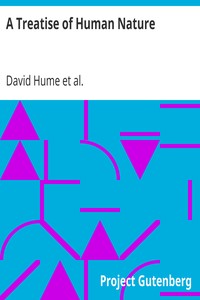A Treatise of Human Nature by David Hume
"A Treatise of Human Nature" by David Hume is a philosophical work written in the early 18th century. This text introduces Hume's empirical approach to understanding human psychology, morality, and epistemology, emphasizing the experimental method applied to moral subjects. The treatise explores fundamental questions about human cognition, perception, and the nature of causation, striving to elucidate the mechanisms underpinning human thought and behavior. The beginning of this philosophical exploration sets up Hume's
ambition to integrate the experimental method into the analysis of human nature, contrasting with traditional speculative approaches. The opening consists of introductions to the first two books, providing insights into Hume's critique of previous philosophical ideas, notably those of John Locke. Hume's examination aims to dissect the foundations of knowledge, questioning the reliability of impressions and ideas and laying the groundwork for his radical skepticism, ultimately challenging the very essence of what it means to know and understand the world. (This is an automatically generated summary.)
Read or download for free
| How to read | Url | Size | |||
|---|---|---|---|---|---|
| Read now! | https://www.gutenberg.org/ebooks/62856.html.images | 1.0 MB | |||
| EPUB3 (E-readers incl. Send-to-Kindle) | https://www.gutenberg.org/ebooks/62856.epub3.images | 415 kB | |||
| EPUB (older E-readers) | https://www.gutenberg.org/ebooks/62856.epub.images | 431 kB | |||
| EPUB (no images, older E-readers) | https://www.gutenberg.org/ebooks/62856.epub.noimages | 422 kB | |||
| Kindle | https://www.gutenberg.org/ebooks/62856.kf8.images | 754 kB | |||
| older Kindles | https://www.gutenberg.org/ebooks/62856.kindle.images | 708 kB | |||
| Plain Text UTF-8 | https://www.gutenberg.org/ebooks/62856.txt.utf-8 | 1019 kB | |||
| Download HTML (zip) | https://www.gutenberg.org/cache/epub/62856/pg62856-h.zip | 411 kB | |||
| There may be more files related to this item. | |||||
Similar Books
About this eBook
| Author | Hume, David, 1711-1776 |
|---|---|
| Editor | Green, Thomas Hill, 1836-1882 |
| Editor | Grose, Thomas Hodge, 1845-1906 |
| Title |
A Treatise of Human Nature Being an Attempt to Introduce the Experimental Method Into Moral Subjects; and Dialogues Concerning Natural Religion |
| Note | Wikipedia page about this book: https://en.wikipedia.org/wiki/A_Treatise_of_Human_Nature |
| Credits | Gdurb |
| Reading Level | Reading ease score: 50.9 (10th to 12th grade). Somewhat difficult to read. |
| Language | English |
| LoC Class | B: Philosophy, Psychology, Religion |
| Subject | Ethics |
| Subject | Emotions |
| Subject | Knowledge, Theory of |
| Subject | Philosophy, English |
| Category | Text |
| EBook-No. | 62856 |
| Release Date | Aug 5, 2020 |
| Copyright Status | Public domain in the USA. |
| Downloads | 239 downloads in the last 30 days. |
| Project Gutenberg eBooks are always free! | |

